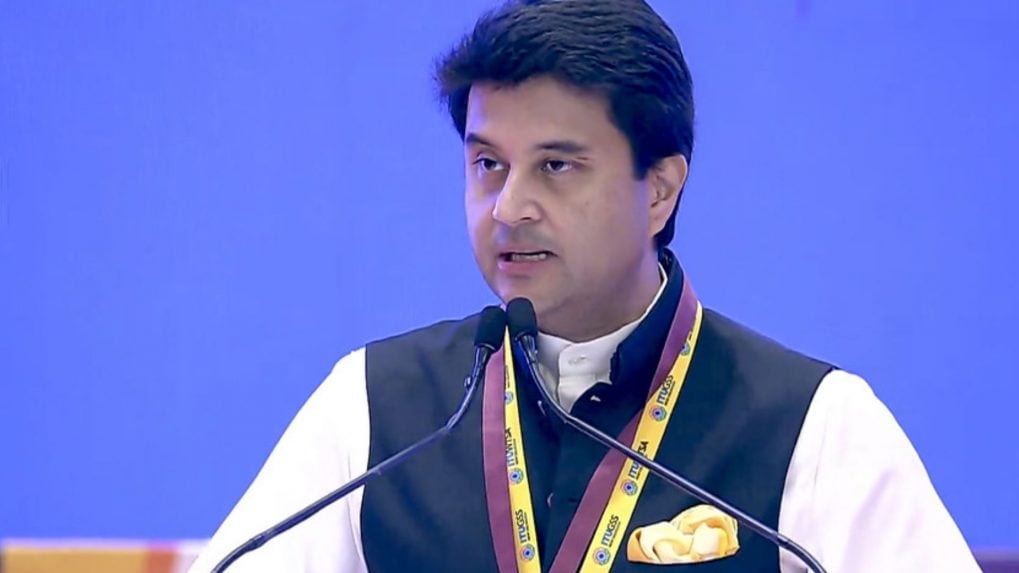13.6 mn mobile nos disconnected based on citizens feedback to curb telecom fraud: Minister Scindia
Union Minister Jyotiraditya Scindia outlines a sweeping crackdown on digital frauds and highlights BSNL’s resurgence, indigenous 4G rollout, and strategic reforms in telecom governance.
ADVERTISEMENT
In a significant address to the Lok Sabha, Union Minister of Communications Jyotiraditya M. Scindia unveiled a robust and multi-layered strategy to combat telecom-related cyber frauds and bolster the performance of public sector telecom giants BSNL and MTNL.
The Minister announced that the Government of India, through the Department of Telecommunications (DoT) and in collaboration with the Ministry of Home Affairs, has activated a series of cutting-edge, technology-driven initiatives to tackle rising digital threats.
Read More: Union Minister Jyotiraditya Scindia chairs high-level meet to ramp up telecom cyber fraud measures
At the heart of this push is the Digital Intelligence Platform, a unified ecosystem comprising over 620 institutions, including banks, law enforcement, investigative agencies, and telecom service providers, all working in tandem to counter cyber fraud in real time.
Public participation has played a pivotal role in this effort. Since its launch on May 16, 2023, the Sanchar Saathi portal has logged over 15.5 crore visits.
Following this success, the Sanchar Saathi mobile app, launched on January 17, 2025, has garnered 44 lakh downloads, offering users tools to report fraudulent numbers, track issued mobile connections, and stay alert.
The results of these coordinated actions have been notable:
- 5.5 lakh handsets blocked
- 20,000 bulk SMS sources
- 24 lakh WhatsApp accounts engaging in fraud activities disengaged
- 1.36 crore unauthorized mobile numbers disconnected
A key tool, "Know Your Mobile Connections", allows users to review and flag mobile connections registered under their name. In parallel, the ASTR (AI-based system) has led to the identification and blocking of 82 lakh fake mobile connections.
One of the most pressing threats - international spoof calls, where foreign numbers appear to be Indian - has seen a dramatic decline after the deployment of a centralized software solution.
On the first day alone, 1.35 crore spoof calls were blocked. Current levels have dropped by 97%, with telecom companies now mandated to tag all such calls as "International Call" for user clarity.
To deepen fraud prevention, the Fraud Risk Indicator (FRI) system was introduced to rate users based on transactional behaviours and share the risk profile with banks in real time. This has already led to:
- 3.04 lakh suspicious transactions being blocked
- 1.55 lakh bank accounts frozen
- Over 3.7 lakh users flagged as high-risk
The Reserve Bank of India has since directed all banks to integrate FRI into their internal alert systems.
Beyond national borders, the Ministry cracked down on the misuse of Indian SIM cards operating from Southeast Asia, disconnecting over 26 lakh roaming connections and blocking 1.3 lakh devices involved in scam networks.
On the revival front, Scindia detailed progress in the BSNL turnaround plan, backed by a Rs 3.22 lakh crore revival package over the last three years.
BSNL's subscriber base has grown from 8.55 crore to 9.1 crore, aided by a decentralized model where each of the 32 telecom circles prepares its own business plan.
A first-of-its-kind 12-hour Strategy and Business Development session was held with Chief General Managers to reinforce accountability.
The Minister also spotlighted India's leap in telecom self-reliance, revealing that BSNL is now rolling out indigenous 4G technology, with the core developed by C-DoT, radio hardware by Tejas Networks, and system integration by TCS.
Out of 95,000 towers sanctioned, 75,000 are already operational, backed by Rs 20,000 crore in capex. The groundwork for BSNL's 5G rollout is already in motion.
The Minister concluded by urging citizens to remain vigilant and make full use of platforms like Sanchar Saathi to contribute to building a secure and fraud-free digital India.
Read More: India set to become the ‘Data Capital of the World’, says Scindia
Read More: DoT unveils directives for telecom operators to ensure inclusive KYC for persons with disabilities


